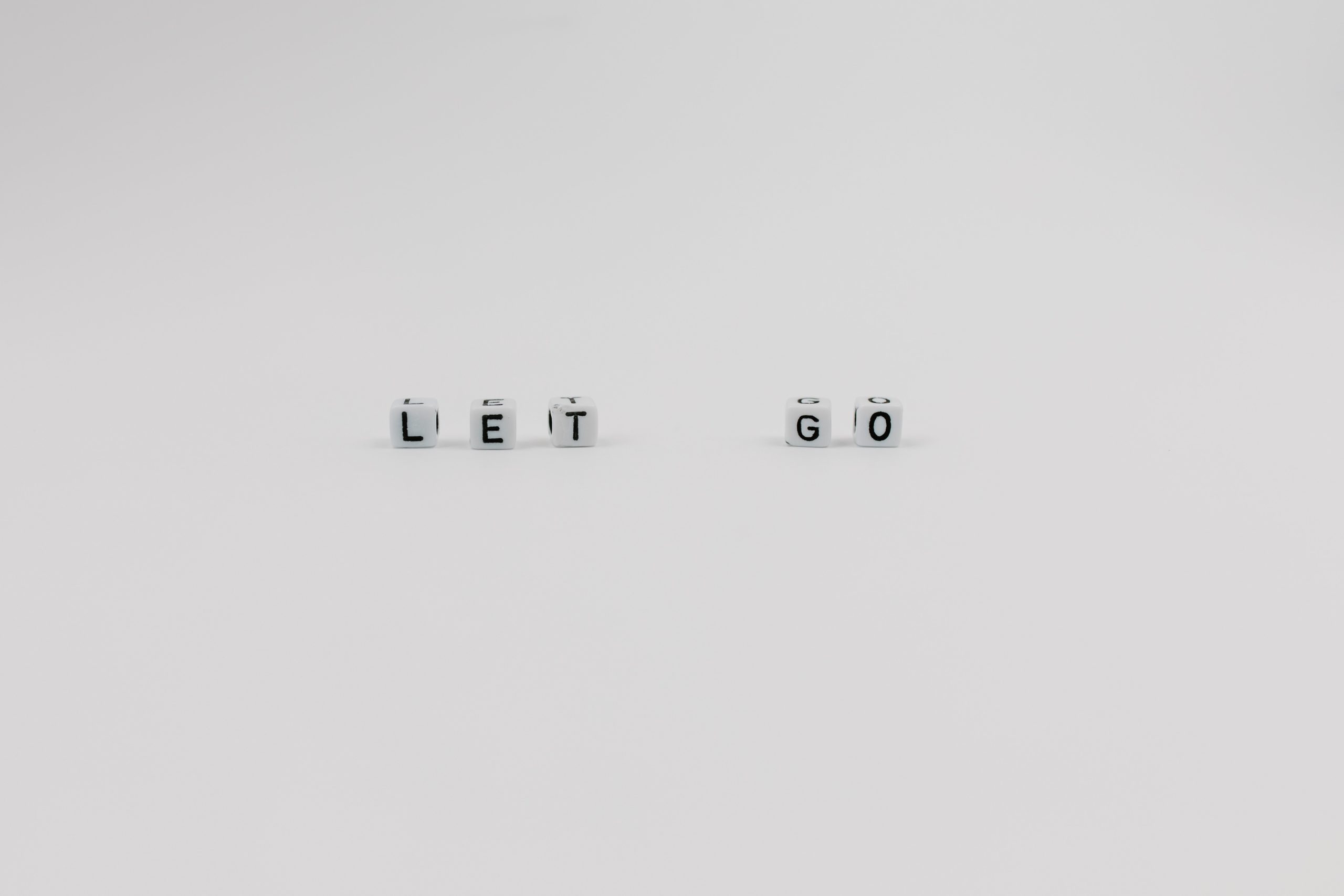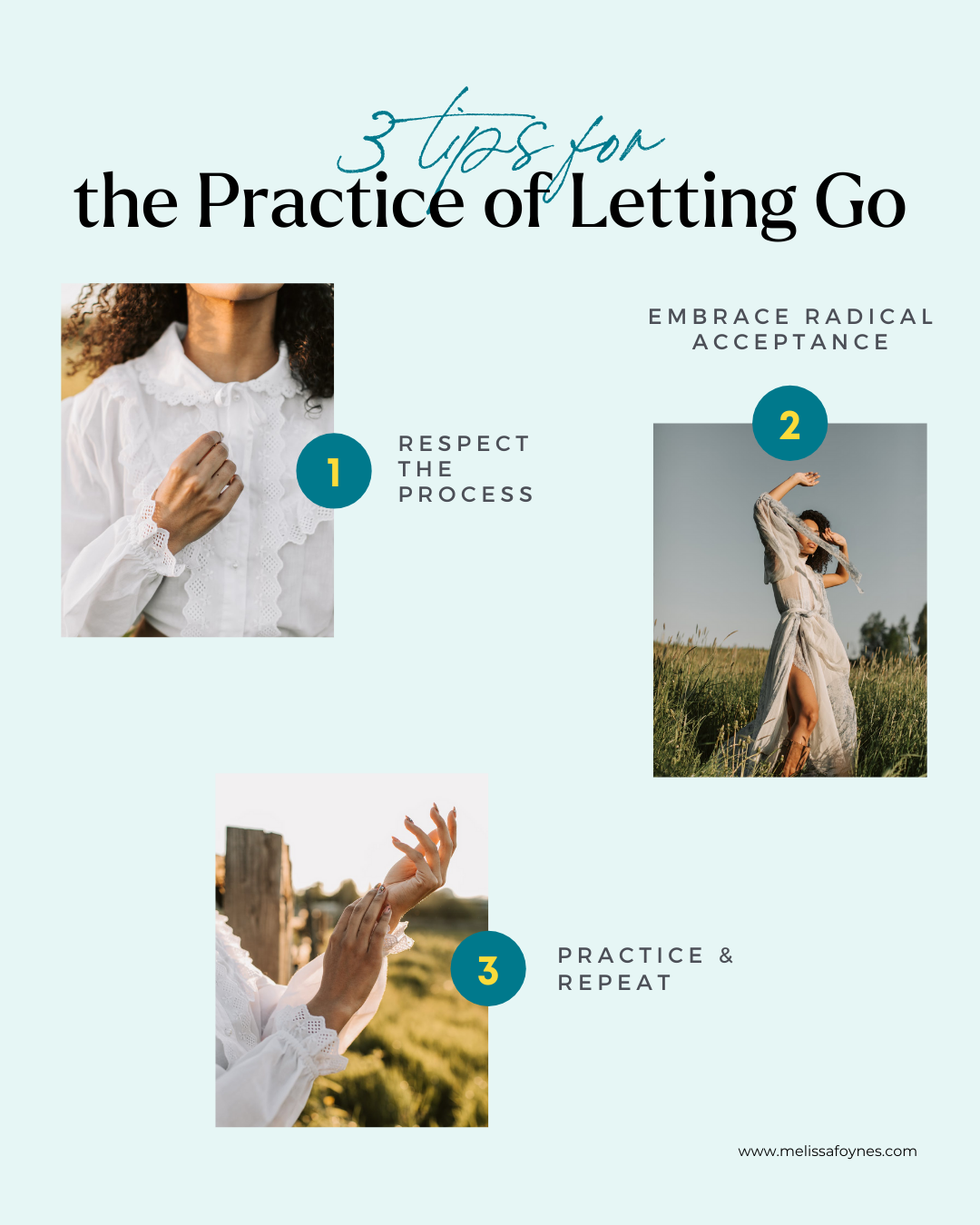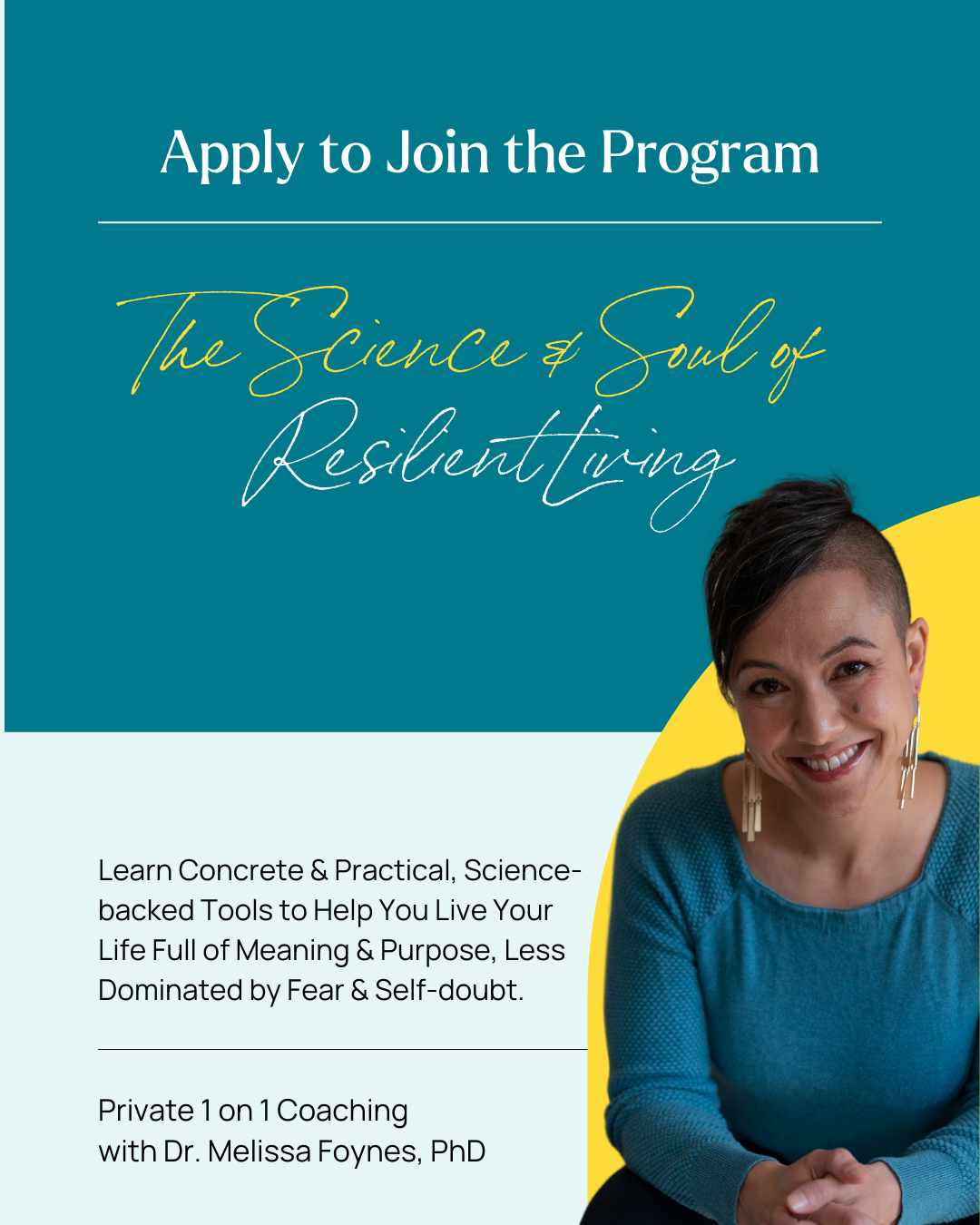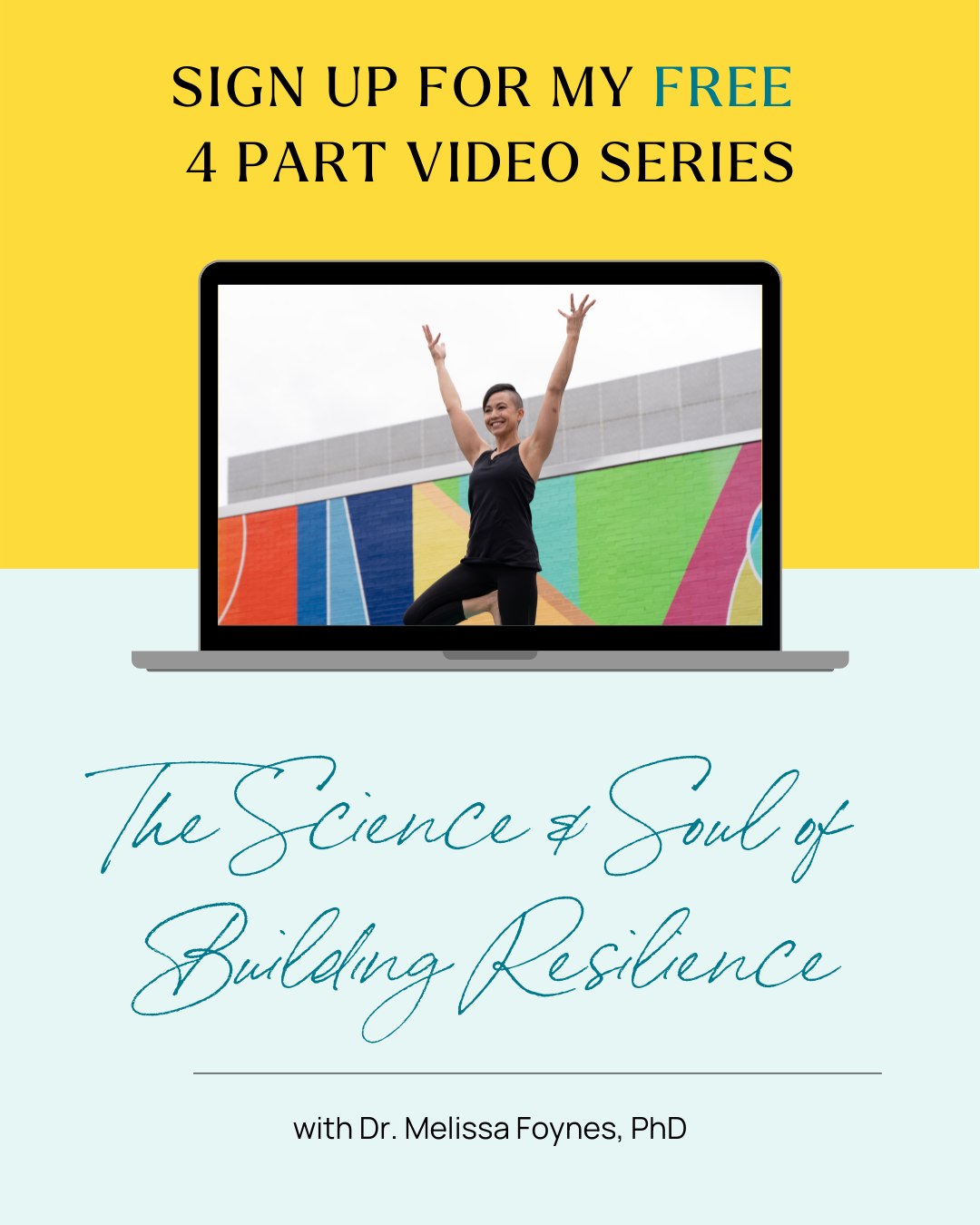welcome, I'm Melissa
Links
As a holistic coach, psychologist, mindfulness, meditation & yoga instructor, & Ayurvedic doula I offer personalized paths to growth & healing.
you may also like...
3 Tips for the Practice of Letting Go
January 14, 2021
Letting go means to gently let be what isn’t serving you — and doing so fully in mind, body and spirit. It’s a process of self-liberation.
We often encourage ourselves, and each other, to “let go” of something that isn’t serving us.
Maybe it’s a situation we can’t change or something that is causing deep personal harm.
Take a minute to pause and consider — is there a relationship, thought pattern or behavior that is impacting your life in a negative way?
Would you feel a sense of freedom, liberation or relief if it had less control in your life?
Approaching letting go as a practice rather than a single step in time supports us in the changes we wish to make.
But what do we mean when we say a practice? A practice is something that you actively engage in repeatedly and regularly.
3 Tips for Strengthening your Practice of Letting Go
1. Respect the Process
When you decide to let go of something that doesn’t serve you, the first step is to respect the process.
Understand that it takes time, and you may face challenges.
This doesn’t make you weak or ineffective or a failure; it makes you human and speaks to how strongly we can attach to things even when they don’t serve us.
Like all practices in our lives, we do our best to stay consistent, and we may need to make ongoing commitments to them.
By respecting the process, we accept that change may be gradually achieved in small increments over time.
There are layers to letting go, and those layers take time to shed. Maybe you let go a little at time — rather than all at once — in order to test the waters.
Figure out what supports you need to establish in order to keep your resolve in making a change.
Whether a relationship, thought pattern or behavior, acknowledging and planning for letting go as a multi-layered process can help strengthen your success.
2. Radical Acceptance
Another important consideration in the practice of letting go is related to what’s often referred to as “radical acceptance.”
By this, we mean embracing the reality of what is — how things are fully and completely in mind, body and spirit. You can’t let go of something until you are clear with yourself about the reality of what you’re letting go of.
One way we can understand how closely we are to radically accepting our situation is to be aware of phrases, including “I shouldn’t” or “I should” or “this isn’t fair” or “why me?”
All of these suggest that we are fighting against reality.
On the other hand, radical acceptance sounds like “I wish this weren’t the case, but it is.”
There is also radical acceptance of what follows once you do let go.
What will it mean once you decide to make this change? Consider what’s involved and what might happen when you do.
It’s not always exhilarating or immediately validating when you are on your path toward personal growth; plus, not everyone in your life may support you. Think through how you might handle this.
3. Letting Go Doesn’t Necessarily Make Things Disappear
Radically accepting that letting go doesn’t necessarily make things disappear is also part of the practice.
For example, letting go of a relationship doesn’t mean that the other person won’t reach out to you and ask you to stay in the relationship — or won’t push back against your new limit.
Practicing trusting yourself more doesn’t mean that you will never doubt yourself again.
As you consider releasing something that doesn’t serve you, remember and recognize that this is a practice. It may be challenging, and your process will likely be imperfect and non-linear.
But you are capable of letting go of relationships, thought patterns and behaviors — even those that may be quite ingrained and have been reinforced over time.
Since anything we engage in repeatedly and regularly is a practice, we honor ourselves by choosing something that can help us cultivate resilience and support our personal growth.
Psychologist and author, Rick Hanson, coined the term “positive neuroplasticity” — meaning intentionally engaging in practices that hardwire beneficial psychological processes in our minds that help us build resilience.
Letting go can become a pathway for creating and reinforcing a healthier experience of our authentic selves.
Letting Go: Next Steps
As we embark upon this process, we may discover that letting go can be hard work.
To further support yourself with clarity and compassion in the practice of letting go…
- Listen to my podcast
Neuroplasticity + The Practice of Letting Go
You can also learn more about my coaching practice through this free video series:
The Science & Soul of Building Resilience
In this 4-part series you’ll learn:
- Body awareness to help us center ourselves and live in a present-focused and embodied way even in the midst of stress
- Decreasing our stress response so we can access intuition and connect to our needs
- Values clarification to guide decisions about prioritizing our time, attention and energy
- Self-compassion to soften our harsh inner critics and facilitate growth following mistakes
SIGN UP to Get Instant Access!
MAKE SURE TO SUBSCRIBE TO THE SCIENCE & SOUL OF LIVING WELL PODCAST!
Apple | Google | Spotify | iHeart | Audible
You can also contact me or join us on Instagram – @drfoynes.
Related Articles on Changing Limiting Behaviors and Habits:
How to Make Positive Changes in Life: 6 Steps
Freebie Alert!
Freebie Alert!
Newsletter
Sign up to get a dose of love, inspiration, wisdom &
all the latest news on events straight to your inbox.
privacy
terms
made with ❤ by habitat society
Explore
©2022, Melissa foynes
Thank you
You're subscribed to my newsletter. Please whitelist my email to make sure you don't missing anything I send you.




